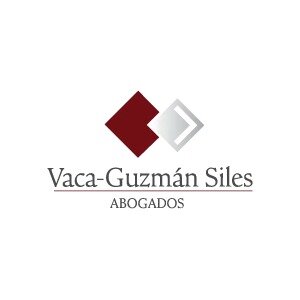Best Corporate & Commercial Lawyers in Santa Cruz
Share your needs with us, get contacted by law firms.
Free. Takes 2 min.
List of the best lawyers in Santa Cruz, Bolivia
About Corporate & Commercial Law in Santa Cruz, Bolivia
Santa Cruz is a central hub for commerce and industry in Bolivia, attracting both local and foreign businesses. Corporate & Commercial law in Santa Cruz governs how businesses are formed, operated, and dissolved, as well as how commercial transactions are conducted. The legal framework covers a wide range of topics, from company formation and governance to mergers, acquisitions, contract law, and dispute resolution. With Santa Cruz's rapid economic growth and dynamic business landscape, navigating the complexities of these laws is essential for entrepreneurs, small businesses, and large corporations alike.
Why You May Need a Lawyer
Dealing with corporate or commercial matters often involves complicated legal processes and significant financial decisions. Here are some typical situations where you may require legal assistance:
- Setting up a new company or restructuring an existing business
- Drafting, reviewing, or negotiating commercial contracts
- Mergers, acquisitions, or forming joint ventures
- Ensuring regulatory compliance for your industry or trade
- Foreign investment rules and establishing branches or subsidiaries
- Labor and employment issues affecting your business
- Resolving commercial disputes with partners, suppliers, or clients
- Protecting intellectual property such as trademarks, patents, and copyrights
- Handling liquidation or bankruptcy proceedings
Local Laws Overview
The main legal framework for corporate and commercial activities in Santa Cruz, Bolivia includes the Bolivian Commercial Code, specific laws on corporations (Sociedades Anónimas and Sociedades de Responsabilidad Limitada), labor regulations, foreign investment laws, and tax obligations. Here are some key points:
- Company Formation: Businesses must register with the Registro de Comercio, managed by Fundempresa. Depending on the chosen structure, there are different legal, tax, and liability implications.
- Shareholding and Management: Corporate bylaws determine the distribution of shares, appointment of directors, and internal governance mechanisms. Compliance with these is closely regulated.
- Commercial Contracts: Contracts are primarily governed by the Commercial Code and are enforceable as long as they are not contrary to law, morality, or public order.
- Employment Law: Strict labor rights apply in Bolivia, including mandatory benefits and protections for workers. Non-compliance can result in significant penalties.
- Dispute Resolution: Commercial disputes may be handled in local courts or through alternative dispute resolution mechanisms, such as arbitration, which is increasingly used for commercial matters.
- Tax and Compliance: Companies are required to register with the National Tax Service and adhere to monthly and annual filings, depending on their activities.
- Foreign Investment: Bolivia allows foreign investment, but there are sector-specific restrictions and requirements, especially in strategic industries.
Frequently Asked Questions
What are the main types of business structures in Santa Cruz, Bolivia?
The most common structures are Sociedad Anónima (corporation), Sociedad de Responsabilidad Limitada (limited liability company), sole proprietorship, and branches of foreign companies. Each type has different registration, tax, and liability requirements.
How do I register a company in Santa Cruz?
Companies must be registered with Fundempresa (Registro de Comercio). The process involves drafting company bylaws, legalizing documents, registering with the tax authority (SIN), and obtaining operating licenses.
Can foreign nationals own or operate companies in Santa Cruz?
Yes, foreign nationals can fully own or participate in businesses in most sectors. However, some industries require special licenses or have ownership restrictions for foreign investors.
What are the basic legal requirements for commercial contracts?
To be valid, contracts must be in writing, signed by all parties, and not violate Bolivian law or public policy. Some contracts require additional formalities such as notarization.
What are my tax obligations as a business owner?
Businesses must register with the National Tax Service and regularly declare and pay taxes such as VAT, corporate income tax, and municipal taxes. Specific obligations depend on the company’s activities and revenue.
How are employment relationships regulated?
Strict labor laws protect employees, including minimum wage, mandatory benefits, severance pay, and limits on work hours. All employment relationships must be documented and reported to relevant labor authorities.
What should I do if there is a commercial dispute?
Many disputes can be resolved through negotiation or mediation. If not resolved, disputes may be taken to local commercial courts or resolved through arbitration if agreed upon in contract.
Is it necessary to have a local partner to start a business?
In most sectors, a local partner is not required. However, working with a local representative can help navigate legal and administrative processes more efficiently.
What is the process for trademark or patent registration?
Trademarks, patents, and other intellectual property must be registered with the Servicio Nacional de Propiedad Intelectual (SENAPI). The process involves filing an application, examination, and official publication.
How can I close or liquidate my business?
Business closure or liquidation involves settling debts, notifying tax authorities, deregistration with Fundempresa, and fulfilling any legal or contractual obligations. The process may vary depending on company structure and debts.
Additional Resources
If you need further information or wish to clarify specific issues, consider these resources:
- Fundempresa: Business registration and public registry of commerce
- Servicio de Impuestos Nacionales (SIN): National Tax Service for tax-related matters
- Ministerio de Trabajo: Ministry of Labor for employment and labor regulations
- SENAPI: National Intellectual Property Service
- Santa Cruz Chamber of Commerce & Industry: Support and networking for business owners
- Santa Cruz Bar Association (Colegio de Abogados): For referrals to licensed corporate and commercial lawyers
Next Steps
If you need legal assistance in corporate or commercial matters in Santa Cruz, it is important to act promptly to protect your interests and comply with local regulations. Follow these steps:
- Identify your specific legal needs, such as company formation, contract drafting, or dispute resolution.
- Gather all relevant documentation and information related to your business activities.
- Consult with a qualified lawyer who has experience in corporate & commercial law in Santa Cruz. Many local law firms offer initial consultations.
- Ensure your lawyer explains procedures clearly and helps you understand all requirements and potential risks.
- Follow up regularly on your case’s progress and keep copies of all legal documents.
Lawzana helps you find the best lawyers and law firms in Santa Cruz through a curated and pre-screened list of qualified legal professionals. Our platform offers rankings and detailed profiles of attorneys and law firms, allowing you to compare based on practice areas, including Corporate & Commercial, experience, and client feedback.
Each profile includes a description of the firm's areas of practice, client reviews, team members and partners, year of establishment, spoken languages, office locations, contact information, social media presence, and any published articles or resources. Most firms on our platform speak English and are experienced in both local and international legal matters.
Get a quote from top-rated law firms in Santa Cruz, Bolivia — quickly, securely, and without unnecessary hassle.
Disclaimer:
The information provided on this page is for general informational purposes only and does not constitute legal advice. While we strive to ensure the accuracy and relevance of the content, legal information may change over time, and interpretations of the law can vary. You should always consult with a qualified legal professional for advice specific to your situation.
We disclaim all liability for actions taken or not taken based on the content of this page. If you believe any information is incorrect or outdated, please contact us, and we will review and update it where appropriate.
Browse corporate & commercial law firms by service in Santa Cruz, Bolivia
Santa Cruz, Bolivia Attorneys in related practice areas.














